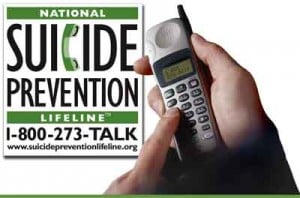
It’s okay to tell someone you’re depressed. In fact, talking about depression is the start of getting help, of being seen.
But the person you choose to tell must be okay with hearing about depression. Depression can be very dark, and not everyone wants to hear the darker details.
The person should be non-judgemental, willing to listen to everything you have to say, and be ready to help you. That help shouldn’t put you or the person at risk. And you shouldn’t ask the person to keep the fact you’re depressed a secret.
Talking is important.
Talking about depression is important. Talk lets you get out emotions and ideas that are jumbled together in a confusing muddle of self talk. When you talk with someone, negative self talk has nowhere to hide. It’s exposed for what it is.
Talking to a friend, family member, or a mental health professional forges a connection to the world. Depression isolates people from one another. It’s an invisible barrier between you and others who seem ‘normal.’ Sometimes a person doesn’t realize he or she is depressed. For example, grief takes a person through several emotional stages. But a grieving person can easily get stuck at one of the stages. This complicated grief can develop into severe depression, especially if the person only thinks he/she is just sad.
How to talk to someone depressed.
“Do you want to talk?”
“Do you feel like talking?”
“How can I help you?”
These are good ways to start a conversation. By asking how you can help, you’re giving power back to the person. Don’t be pushy about talking. Don’t expect the person to suddenly open up, or to snap out of depression. Depression doesn’t work that way. Instead, give hope by promising to be there for the person.
“I’m here if you want to talk. I love you.”
“Look forward, past your pain, and see it won’t always be this way.”
Don’t promise to keep depression a secret.
Depression should never be kept secret. Unfortunately, it happens often.
Depression still carries a lot of stigma. In many cultures, mental illness is shameful. For others, it’s about the potentially negative reaction at workplace, a club or organization. There’s shame by association which can cause families to withdraw needed support. Finally, there is the person considering suicide.
If someone who is depressed starts talking about ending it all, or how it would be better if he/she didn’t exist, you need to let a medical professional or trained adult know. You’re not expected to be a mental health specialist. Contact the national mental health hotline or a local mental health organization.
You’re not betraying the person. You may feel guilty or loose the trust or friendship of the person, but you did the right thing.
Need help? In the U.S., call 1-800-273-8255 for the National Suicide Prevention Lifeline. (http://www.suicidepreventionlifeline.org)
Find me on twitter @tereziafarkas
Or my website: http://www.tereziafarkas.com



